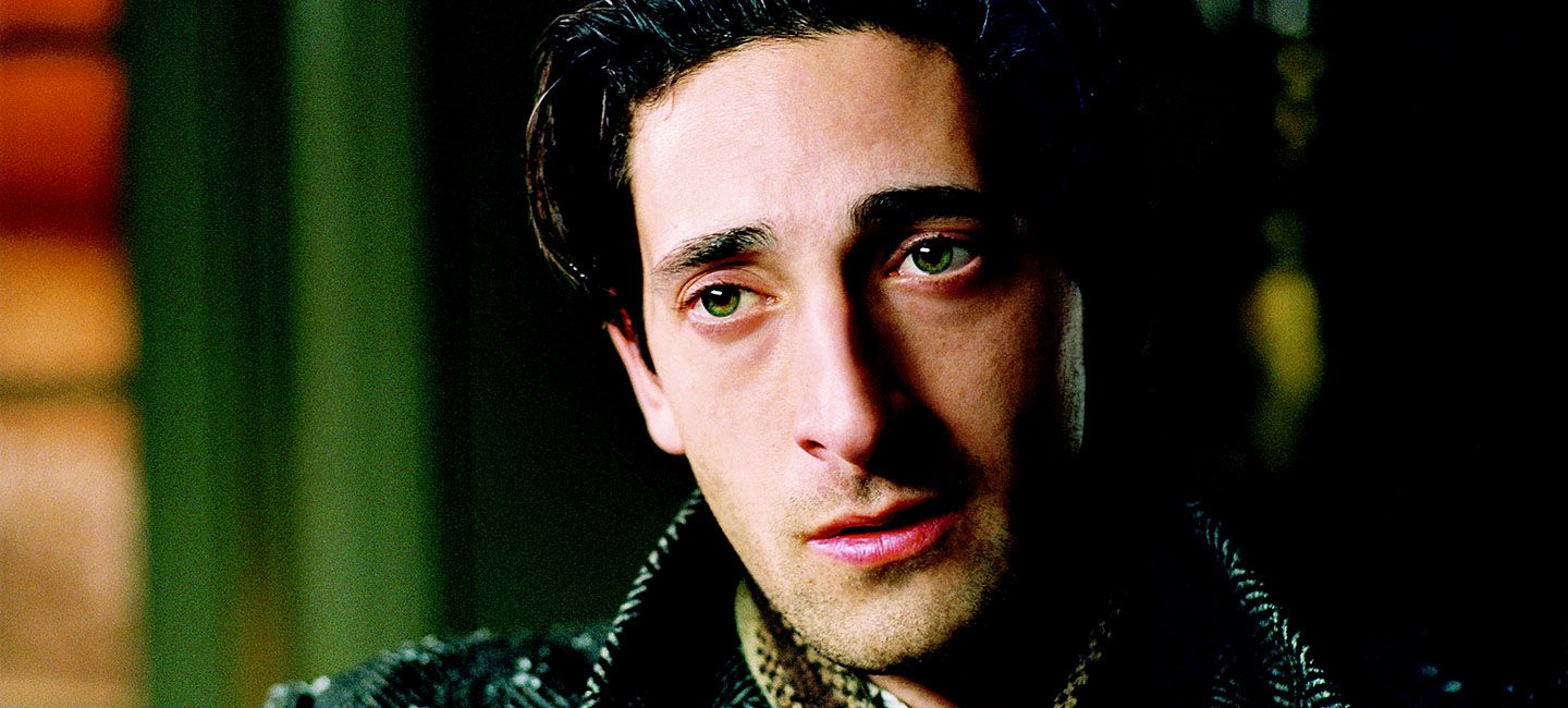On its 15th anniversary, Roman Polanski's The Pianist not only holds up, but gains in grace and urgency. Adapted by Ronald Harwood from Polish Jewish concert musician Władysław Szpilman's memoir about eluding the Nazis, the Holocaust drama starring Adrien Brody won three Oscars in 2003: Best Actor, Best Director and Best Adapted Screenplay. (Brody's win was memorable not only for his age – at 29 he was the youngest best actor winner, ever – but also in how he accepted the honor.)
The award-winning Jewish-American writer Cynthia Ozick wrote "To imagine the unimaginable is the highest use of the imagination." This, too, describes this film's harrowing yet restrained descent into genocide in telling the story of the supremely talented Szpilman, memorably portrayed by Brody.
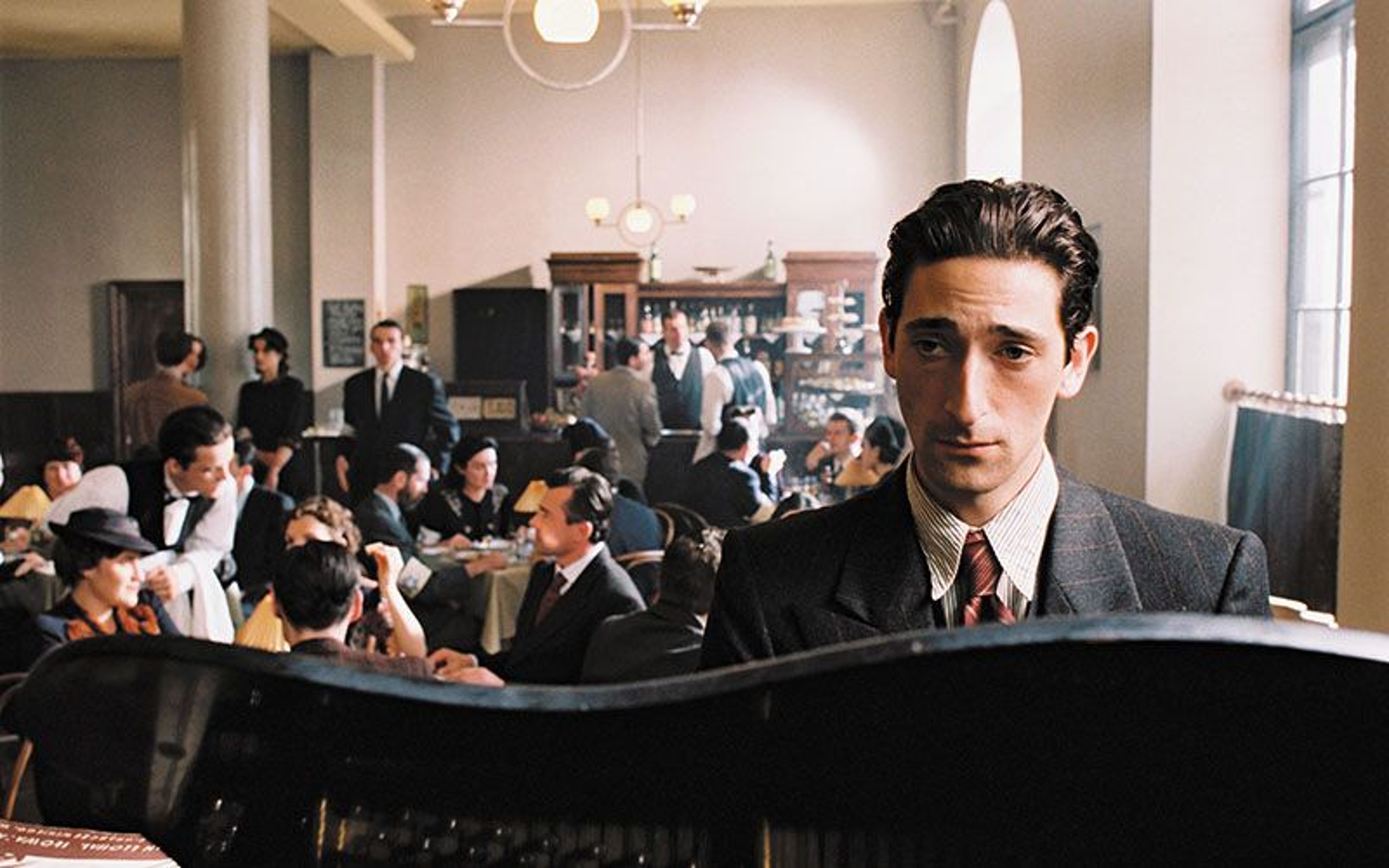
Adrien Brody portrays Wladyslaw Szpilman, playing in a Warsaw cafe
The breaking of a bubble
The Pianist opens in the twilight of Warsaw in 1939, when the ambitious musician and composer performs on Polish radio. Like Focus Features' upcoming film, The Zookeeper’s Wife, it shows the capital city thriving with culture, but on the brink of war.
Entirely dedicated to his art, Szpilman lives in an upper-middle class intellectual bubble, buffered by a close, loving family. The affable young man’s focus is such that, when bombs begin to explode outside the radio studio, his fingers continue stroking the keys. Let the windows shatter and the walls crack, he's unwilling to stop in the middle of a musical movement that, to the artist, is more pressing than reality.
Szpilman learns that the power of music cannot overturn tanks, or ward off fascism, or the goose-step-march of history. What is a pianist without an instrument, or bread, or a safe attic in which to hide from the ovens of Auschwitz and elsewhere? This is a familiar arc of Holocaust movies: the belated realization that the Nazi regime will destroy the comforts of life, followed by inevitable betrayals and a downward spiral as the 1930s crumble into the war-ravaged 1940s.
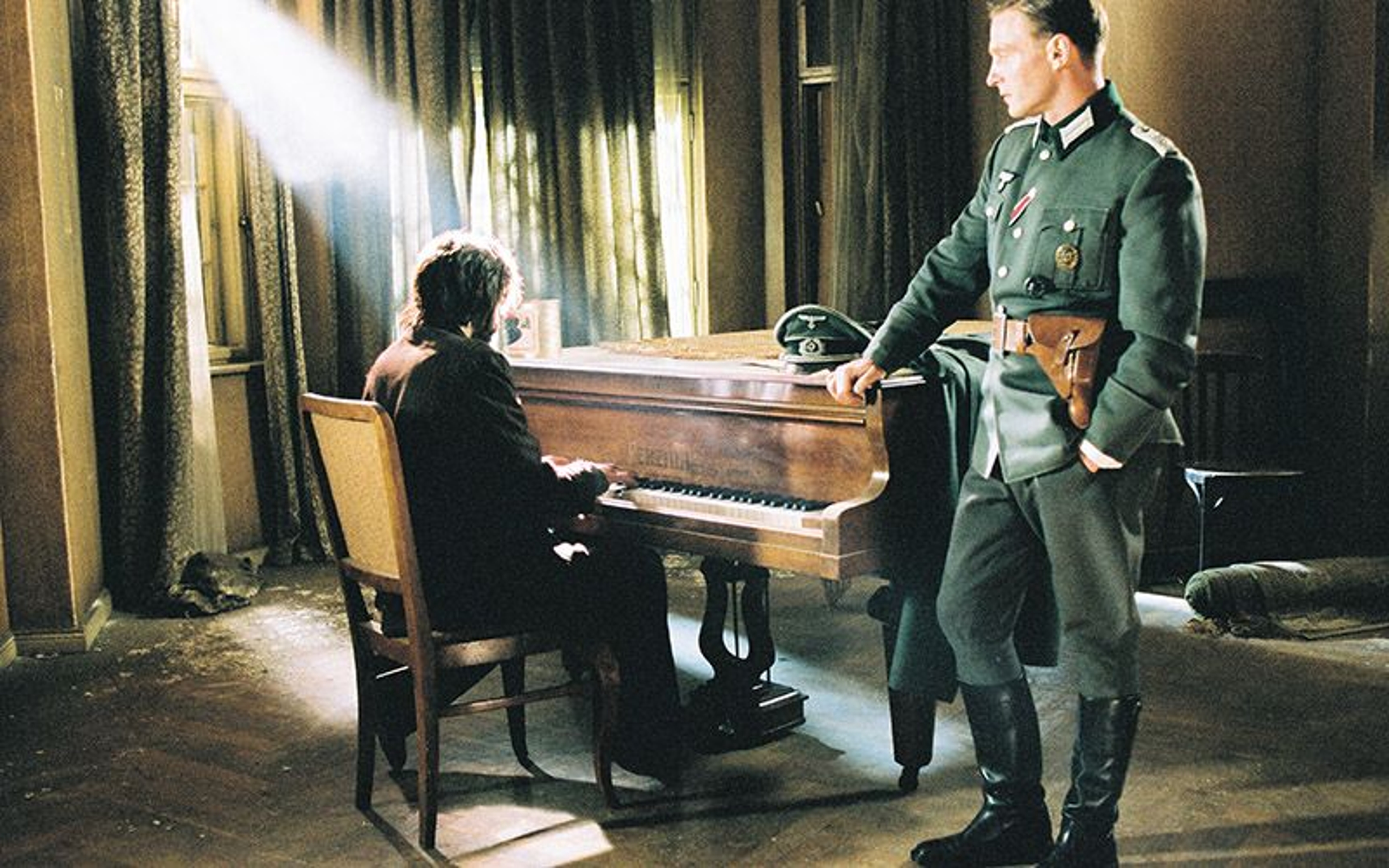
Starving and badly wounded, Wladyslaw Szpilman (Adrien Brody) performs for an SS Officer in The Pianist
The healing power of music
And yet, while the Nazi Holocaust has been the focus of previous and subsequent films, Polanski's chosen narrative rests on the back of one exceptional individual who, one would venture to guess, identifies first as a musician and only then as a Jew. Szpilman carries within him the ability to play the most sophisticated classical music (mostly Chopin, Poland's most famous composer) capable of moving all men, Nazi and Jew alike. Szpilman's struggle for survival against oppression is visceral and detailed, yet it is the redemptive power of music, of the great good of human civilization embedded in this dedicated individual that makes the film transcendent. Not only is he a survivor, he's the keeper of a priceless cultural tradition made flesh.
In the forthcoming The Zookeeper's Wife, music also has a pivotal role. We see how Antonina Żabińska, portrayed by Jessica Chastain, not only plays the piano as a warning signal to the Jewish refugees hidden in her house’s basement, but later uses it to sooth and calm them. The classical music reminds them of the lives they have led and restores, even if only briefly, their humanity. The affect is similar to a moment in The Pianist, when Spzilman performs for an SS Officer who protects him towards the end of film.
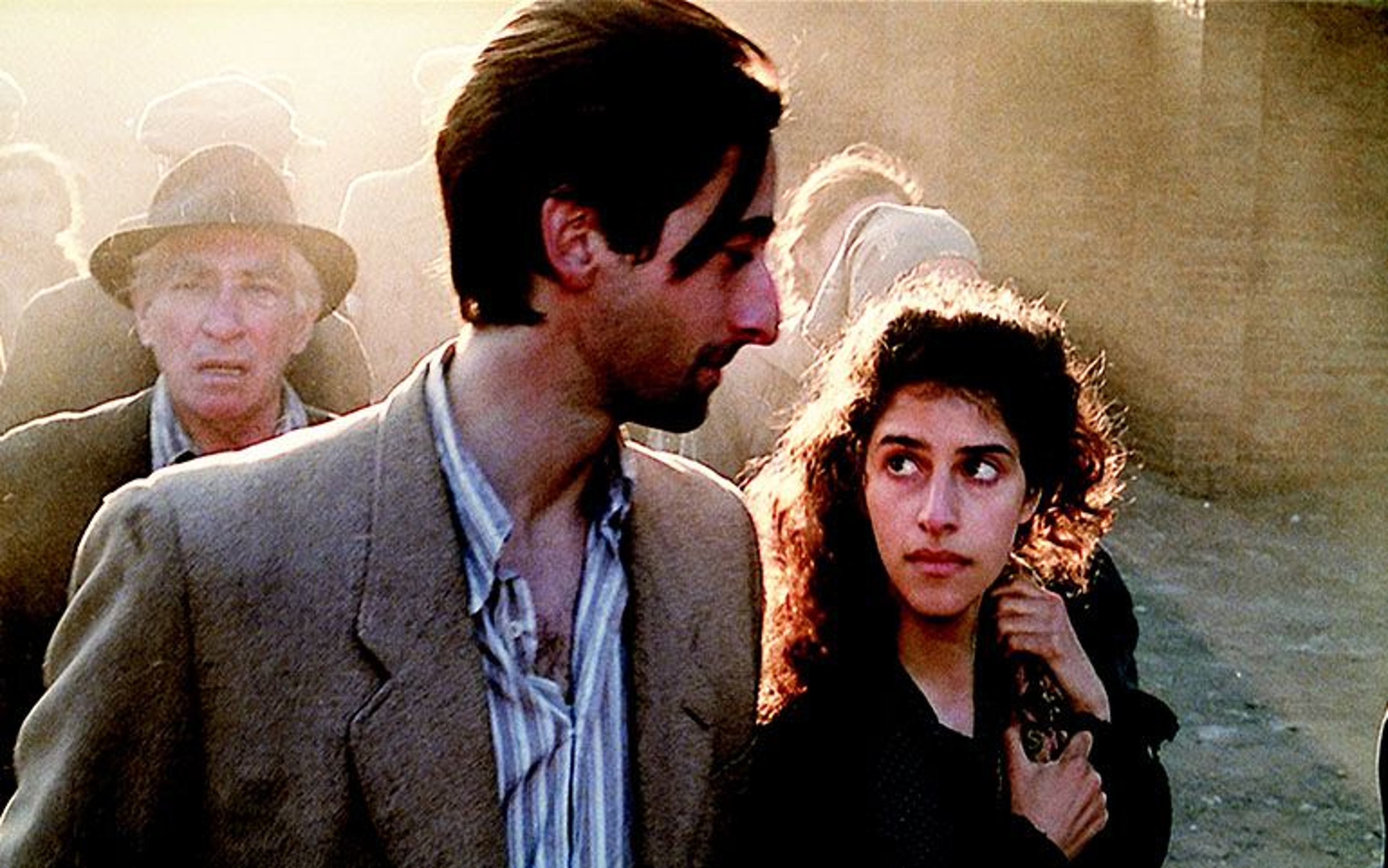
Wladyslaw Szpilman (Adrien Brody) and his sister, Halina (Jessica Kate Meyer) in The Pianist
Remembering heroes, and those that need them
While many Holocaust survival tales hinge on protagonists whose bravery is extraordinary (like the Żabińskis in The Zookeeper’s Wife) The Pianist tells a different story. The film in some ways is Szpilman's awakening from a dream of cultural exceptionalism into the equalizing nightmare of WWII, and Brody honors the portrayal without stretching to be a hero. As his family walks through the streets of the Warsaw ghetto toward the cattle cars transporting them to the death camps, he turns to his sister. He says that he wishes he'd gotten to know the young woman better. It is a moment of belated awareness and deep sadness – the self-involved protégé acknowledging that he missed the opportunity for a truer connection with his sister. Brody delivers the line with a fraternal, rueful, better-late-than-never laugh, so much more powerful than a melodramatic farewell.
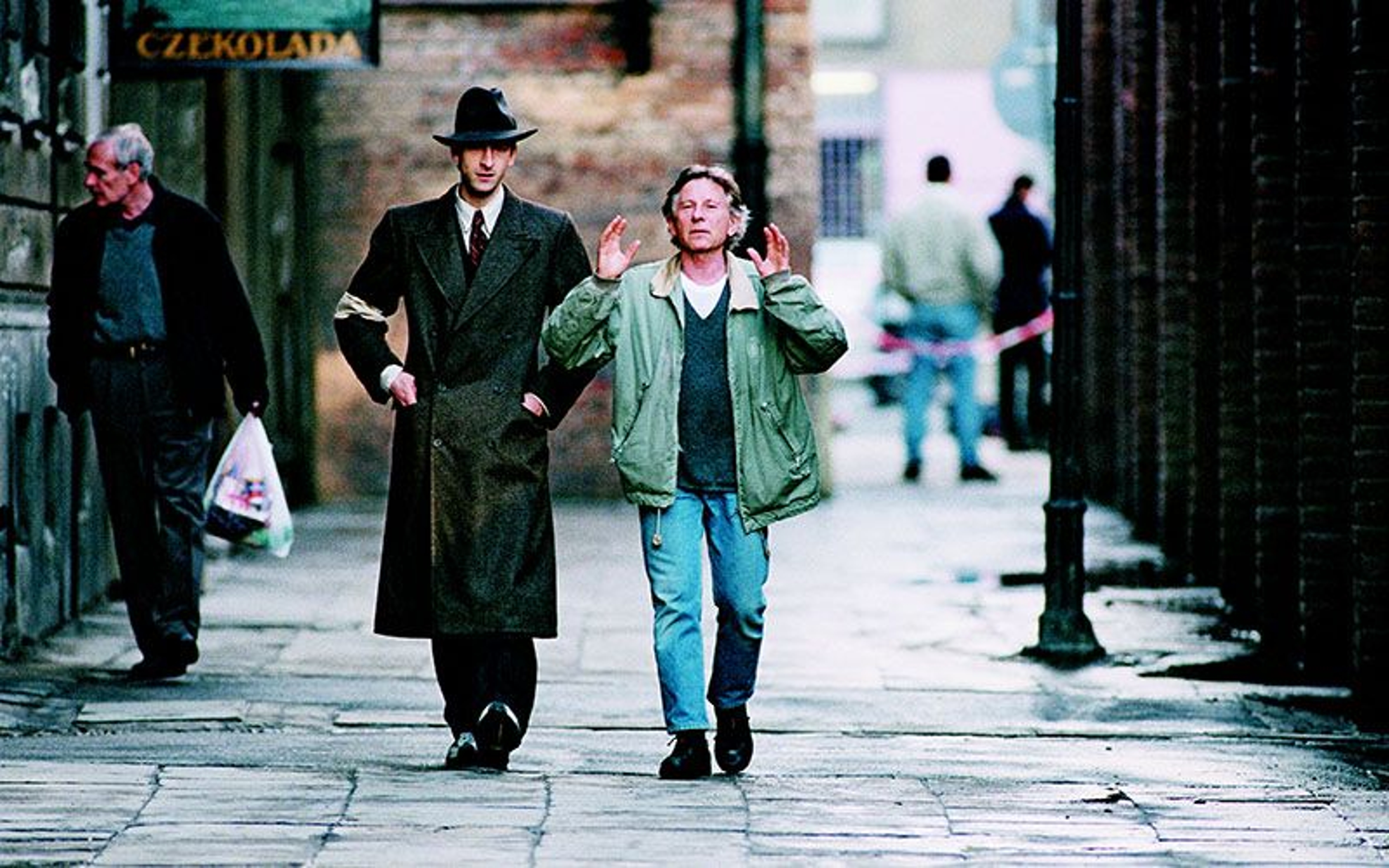
Director Roman Polanski, on set with Adrien Brody, star of The Pianist
Through a survivor’s eye
While The Pianist is a period drama, it could not be more relevant to contemporary political debates. We have seen these horrors within our lifetime – and the life-or-death decision to accept Muslim refugees or deny them access to our shores resonates in this timeless film directed by a Polish refugee.
For Holocaust survivor Polanski, who escaped the Krakow Ghetto to the south as a boy in 1943, the movie is intensely personal if not autobiographical. There is a moment where a soldier slaps the well-dressed family patriarch simply because he can, sending the older man with his fur-trimmed collar to slosh in the gutter, which arose from Polanski's own life.
The attention to detail, the shabbiness of once-fine clothes on the ghetto-dwellers, the blue-faced corpses of children in the street, the palette of browns and muddy ivies: all originate with Polanski. But it is the director's clear-eyed dedication to get out of the way of his story, to avoid stylistic embellishment and honor Szpilman's journey, which reflects Polanski's great art as a filmmaker. The tale is so innately moving that it requires restraint in the telling. Polanski, Holocaust survivor and an artist like Szpilman, achieves this so memorably.
Watch The Pianist now on iTunes. And take a first look at The Zookeeper's Wife, opening in theaters March 31.
THELMA ADAMS is a bestselling novelist and film critic who has reviewed films for Yahoo Movies, Us Weekly, the New York Post and VF.com. She currently writes a weekly, wide-ranging cultural column for the Observer. Follow her on Twitter @thelmadams.
